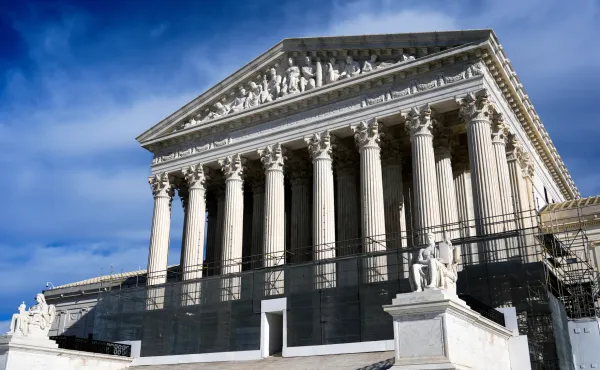Candles in the Blizzard: A Christmas Story
It was Christmas Eve, 1976. Bruised winter clouds hung low over the city, heavy with unspent snow. The endless urban sprawl stretched from Manhattan, across the Hudson River, and into the gridded maze of North Bergen, which Blair and Regina Adams now called home. The city buzzed with its usual cacop

NOTE:
This story is based on a Christmas Eve memory my father often shared, enriched with details from my mother’s recollections and my understanding of the time and season. Written for my family’s joy and perhaps your blessing, it reflects the true meaning of love and giving at Christmas.
~~~~~~~~~~~~~~~~~
It was Christmas Eve, 1976. Bruised winter clouds hung low over the city, heavy with unspent snow. The endless urban sprawl stretched from Manhattan, across the Hudson River, and into the gridded maze of North Bergen, which Blair and Regina Adams now called home. The city buzzed with its usual cacophony—horns blaring, tires squealing, sirens wailing into the night. But inside their apartment, Christmas had managed to carve out a quiet refuge.
Blair and Regina had lived in the metro area for three and a half years, though their new North Bergen apartment was a far cry from the cold-water flat on Manhattan’s Lower East Side where they had started.
Their ministry had grown with the same scrappy resilience that had carried them through those early days. The church was no mere building but a family of believers—a living, breathing community that broke bread together, prayed, laughed, and leaned into life’s joys and burdens as one. They lived close, too. Across the street were the Steins with their three kids, Adi, Joseph and Rachel. On the corner, a group of single women shared an apartment, pooling resources and life stories.
The Adamses had given their lives to ministry six years ago, and every day since bore the mark of that calling. Blair preached, taught, counseled, and prayed his way through each week. Regina was no less involved, holding the fort at home while weaving herself into the tapestry of lives around them. They had planted an inner-city congregation in Manhattan three years earlier, and now the church’s base was shifting across the Hudson, with Blair and Regina at the helm.
The day had been a gentle rhythm of visitors. Jeanne had dropped in to say hello with Adi at her side with a plate of cookies, and Shoshana had sought Regina’s advice about a relationship. The quiet lull of Christmas Eve, however, brought a rare promise: an evening to themselves. Their two children, three-year-old David and 10-month-old Amanda, were already asleep, dreaming of tomorrow’s delights—wrapped presents and cinnamon-sweet treats.
Regina had taken care to make the evening special. She wore a blue velvet dress, simple yet elegant, and had set the table with treats that felt indulgent: queso and chips, Blair’s favorite date pinwheel cookies, roasted nuts, and wedges of cheese they wouldn’t normally splurge on. A red tablecloth framed the spread, and two candles flickered in silver-etched glass holders—a wedding gift from Blair’s grandmother, more elegant than anything else in the modest apartment.
Blair emerged from the bedroom with his broad 6’2” frame clad in a brown corduroy sports coat. His face lit up at the sight of the table and his wife, her cheeks flushed with warmth.
“Honey,” he said, his deep voice tinged with wonder, “this is beautiful.” Then, with a twinkle, he added, “But I don’t know how we’re supposed to eat all this.”
They laughed and sat down, savoring the stillness that was so often elusive in their whirlwind lives.
Then, the phone rang.
Its harsh, metallic jangle shattered the moment, cutting through the warmth like a blade. Blair frowned, exchanging a glance with Regina. The brown rotary phone hanging on the wall rarely carried good news at odd hours. It might be a report of a burglary, a late-night hospital emergency, a frantic plea from a bus station, or even a collect call from prison—you could never predict what awaited on the other end.
Blair answered, “Hello?”
“Brother Blair?” a woman’s voice crackled, edged with worry. It was Helen, calling from Mahwah. “I hate to call this late, but it’s Michael. He didn’t come home after work, and I’m getting worried.”
Blair stretched the phone’s coiled cord as far as it would go, peering out the window. Snow was falling steadily now, blanketing the streets in thick, relentless silence. “Where was he working?”
“Leo’s, in Paterson,” Helen replied. “I already called. They said he left an hour ago.”
Regina stood by, listening intently. Their eyes met—hers steady and resolute, his tinged with regret as he glanced at the beautifully set table, pursing his lips in a disappointed grimace.
Blair sighed. “Helen, it’ll take me a while to get there with the weather, but I’ll head to his workplace first and check along the way. I’ll also contact the police if I don’t find anything.”
“Thank you, Brother Blair,” Helen said, her voice cracking with relief.
As soon as he hung up, Regina disappeared into the bedroom, returning with his thick brown parka, wool fedora, and scarf.
“I’m so sorry,” Blair said, his tone heavy with guilt.
“Don’t be,” Regina said, her voice firm but kind. “This is what we do.”
She helped him into his coat and handed him the scarf. “Call me if you hear anything.”
Blair fished his gloves from his coat pockets before gripping the doorknob. The frigid wind pressed against the door, eager to invade the warmth of their home. He stepped onto the stoop, the air slicing into him, carrying a sharp chill that felt more like January than late December. Behind him, the apartment door clicked shut, and the night wrapped itself around him.
He trudged past the kitchen window, his boots crunching softly in the snow, and paused when he caught sight of Regina’s face framed behind the crisscrossing panes. She beamed through the frosted glass and waved with an exuberance as though he’d been gone for days instead of mere moments. He stopped, his breath misting in the frigid air, and smiled back. Raising a gloved hand, he blew her three playful, exaggerated kisses, watching her laugh and press her hand to the window in response.
Tucking his chin into his muffler, he made his way westward along Park Avenue, the lifeline of North Bergen. Though the avenue was lined with tidy brick apartments and small storefronts, the snow had rendered the streets unusually hushed. Normally, the lights from nearby Boulevard East would cast a glow over the neighborhood, but tonight the falling snow dampened even that. He glanced up toward the Palisades cliffs to the east, where the lights of Manhattan’s skyline would normally be visible, and saw only a faint orange haze.
Reaching his battered white compact Mazda station wagon, affectionately nicknamed “the War Wagon,” Blair took stock of the snow covering it. The windshield wasn’t iced over yet, so the wipers cleared the powder easily enough. The engine, however, protested. He pumped the gas pedal in bursts, coaxing it to life through a cacophony of sputters and rattles before it finally coughed to life. The Mazda groaned in the cold, filling the cabin with the pungent smell of gasoline as the carburetor warmed.
Blair pulled onto the grid of North Bergen’s streets. Even in daylight, the area was a hodgepodge of tight corners, uneven pavement, and abrupt hills—tricky in any weather but especially in snow. Tonight, the neighborhood seemed unrecognizable under its new mantle of white. The Mazda slid slightly as he turned toward Tonnelle Avenue, the industrial artery lined with warehouses, auto shops, and the occasional diner. Even this normally bustling thoroughfare was strangely quiet—pleasantly so.
Blair prayed softly as he steered toward Route 1/9, the artery that stitched together North Bergen’s industrial sprawl with the larger web of highways. This stretch of road was a patchwork of gritty asphalt regularly divided by intersections and flanked by factories and fuel depots, their looming shadows softened by the gentle glow of falling snow. He marveled at how a touch of heaven’s grace could transform the grimy, shadowed cityscape into something almost serene, even inviting. It still amazed him that a man raised in Texas, with a love for open skies, horses, and the quiet rhythm of country life, would find his calling here, among these streets and boroughs. These people, with their brisk urban ways, had honest, hungry hearts, and that thought made the snow-dusted scene even more beautiful. The friendships forged here, he knew, would last a lifetime, for the love exchanged was divine and eternal. Yet tonight, the urgency of his mission pressed upon him, and the thickening snow seemed intent on slowing his path.
Once he reached the New Jersey Turnpike, the scale of his journey became clear. Mahwah was over 30 miles away, on the far edge of Bergen County, and in this weather, it would feel like a hundred. The Turnpike’s northern extension wound through the Meadowlands, a vast marshland turned industrial wasteland, its skeletal factories and refineries outlined faintly against the cloudy sky. Even at a cautious 40 mph, the Mazda's tires occasionally skidded on icy patches.
He passed service stations and the silhouettes of darkened storefronts behind locked security grates, but few vehicles braved the roads this late. His hands ached from gripping the wheel, his gloved fingers flexing to stave off cramps. Softly, he began to pray again under his breath—prayers for Michael, for Helen, for Regina waiting back home, and for his own safe passage through the storm.
For Blair, prayer was no forced formality. It tumbled from his heart as words spoken freely to a friend in private.
Blair scanned the ditches carefully, hoping to spot Michael’s car—a newer-model Mercury—but each glance yielded nothing but snow-covered wrecks and scattered taillights. When he reached the garage where Michael worked, his hopes dimmed further. The building was shuttered for the night, its doors locked and barred, the lot empty except for the pale glow of streetlights reflecting on the icy pavement.
His thoughts turned to Michael and Helen. Michael’s transformation had been radical: once a gun runner for the Cuban mafia, then a heroin addict, and finally, a prisoner. Helen’s story was no less dramatic—raised without God, steeped in the occult, and caught in the grip of addiction until she found supernatural deliverance through grace. Their lives had been redeemed, but they were still young in faith, still wrestling with old habits and battles. They had come so far, yet the road ahead seemed to their pastor as treacherous as the one he traveled tonight.
As he pressed northward, the scenery shifted. The suburban sprawl thinned into dense woods, and the parkway narrowed, the trees leaning close to the shoulders like silent sentinels. The Mazda’s heater hummed steadily but did little to keep the creeping chill at bay. Blair’s eyes remained fixed on the roadside, scanning for any trace of Michael’s Mercury Monarch, though the snow smothered nearly everything beyond the reach of his headlights. When he passed the parking lot of a notorious bar, half-filled even in the storm, his chest tightened. He slowed, his pulse quickening—but relief swept over him when he saw no sign of Michael’s vehicle.
“Keep him safe, Lord,” he whispered. “Bring him home.”
Hours passed, the windshield wipers thumping their metronome rhythm against the snow. The police station offered no news—just a tired officer shaking his head. “Too many accidents tonight, Reverend,” he said. “We’re stretched thin.”
By the time he reached Route 17, he was nearing Mahwah, though the journey had already stretched well past two hours. Blair slowed as he passed Mahwah Bar & Grill, its parking lot sparsely filled, its neon signs muted by the storm. He hated himself for checking it, wondering if Michael’s car might be there.
Blair had been to Mahwah only a handful of times. Nestled at the foothills of the Ramapo Mountains, it felt like a different world compared to the dense, urban streets of North Bergen. Even now, under a thick blanket of snow, Mahwah retained its rural charm. The wind howled through the open stretches of land, carrying with it the sense of isolation that only winter could bring. Yet his internal compass led him unerringly to Michael and Helen’s home.
As he pulled into their driveway, his headlights illuminated the unmistakable outline of Michael’s Monarch parked outside the garage. Fresh tire tracks snaked through the snow, evidence that Michael had only recently arrived. He barely had time to cut the engine before the front door swung open. Michael and Helen rushed out, coatless despite the biting wind, their faces full of apology.
“Brother Blair! We’re so sorry!” Helen called, her voice almost swallowed by the storm. “He got home almost an hour ago, but we had no way to call you!”
He stepped out of the Mazda, steadying himself on the slick driveway. Relief flooded through him as he saw Michael safe and sound. “It’s all right,” Blair said, his voice calm and forgiving. “You’re home. That’s what matters.”
The dashboard clock read past 11:30 as he turned onto the main road back to North Bergen. The streets were nearly deserted, the few cars left crawling cautiously through the snow-draped silence. Gratitude softened the sharp edges of Blair’s fatigue, and he whispered prayers of thanks into the dark. His thoughts drifted to Regina in their little apartment, the candles likely snuffed out, her blue velvet dress exchanged for the warmth of sleep. He knew how much care she had poured into making their evening memorable, how hard she had worked to create something beautiful—and he felt the ache of leaving her behind, even for this worthy cause.
The Mazda’s tires slid dangerously on a sharp turn near Ramsey, and Blair’s breath caught as he corrected the skid with practiced precision.
When he finally reached North Bergen, the city was shrouded in stillness, its streets blanketed in snow. Park Avenue’s familiar buildings rose like sentinels through the gloom. To his surprise, he found a parking spot near the far end of the block—a rare blessing on a night like this. Blair locked the car and began the short trek home, snow stinging his cheeks and seeping into the folds of his scarf.
As he approached their apartment, a soft glow greeted him from the kitchen window. He opened the door cautiously, shutting out the howl of the wind, and was met with the faint aroma of spiced tea—an unexpected comfort that stirred memories of his grandmother’s home at Christmastime.
The kitchen table was still set, its festive spread untouched but inviting. Regina lay stretched on the couch, her blue velvet dress still draped over her petite 90-pound frame. Her breathing was slow and steady. Blair stood silently, watching her, marveling at the strength and grace she brought to their shared life and the scores of people who looked to her as a mother, though she was still in her twenties.
Regina stirred and sat upright, setting aside her blanket, her hand reaching instinctively for her glasses on the side table.
“What about Michael? Is everything okay?” she asked, her voice groggy but threaded with concern.
Blair leaned against the doorway, his face softening with a tired smile. “Yes,” he said quietly. “He was home by the time I got there.”
Her shoulders sagged with relief. “Oh, Honey, I’m sorry you went through all that trouble for nothing. You look exhausted.”
“It wasn’t for nothing,” he replied, his voice soft but certain. “They know we love them. That’s what matters.”
It was too late for much conversation, the weight of the night settling quietly between them. Yet as Regina drifted into the kitchen, her thoughts swirled with a quiet realization. Many would doubtless consider any night well-spent for saving someone from a blizzard. But for her Blair, people needed rescue from more than nature’s cold; they needed deliverance from the deeper chill of isolation, the ache of feeling alone and unloved. The night’s true resolution wasn’t found in roads braved or missions completed, but in love proven.
Slipping off his polished brown shoes, he sank into his armchair, the weariness of the night catching up with him. The faint hum of the heater filled the quiet living room as he leaned back. Just as he closed his eyes, a soft crackle broke the silence—the unmistakable sound of the record player coming to life.
Then, the first plaintive notes of “O Holy Night” drifted through the apartment, the melody like a soothing prayer in the stillness.
Blair found himself smiling again in the dark. He stood from his chair in the living room and stepped into the kitchen. There she was, framed behind the flickering candles. Regina had relit them, their soft glow casting warm light across the table and the spread of festive treats she had lovingly set out. She sat with her chin resting in one hand. The weariness showed in both their faces, but the flicker of light in their eyes came from more than the candles.
“Shall we have our Christmas now?” she asked.
Blair hesitated for a moment, overwhelmed by the quiet beauty of the scene.
Without a word, he crossed the room and sat down across from her, the whole rest of the world melting away. The snacks tasted more delightful, the desserts sweeter, and the moment richer—infused with the depth that plans assume only when interrupted by higher purpose and love.
He glanced at his watch, the hands hovering past 1 A.M. “Well,” he said with a chuckle, “I guess it’s officially Christmas now.”
“Merry Christmas,” she said, her voice laden with gratitude, admiration, and love.
“Merry Christmas,” he replied.
And as the record spun on and the snow continued to fall, the night’s interruptions became part of the backdrop to a memory they would carry and share with children and grandchildren forever—a moment made perfect by its imperfection, proof that love, both given and received, always finds its way back home.





